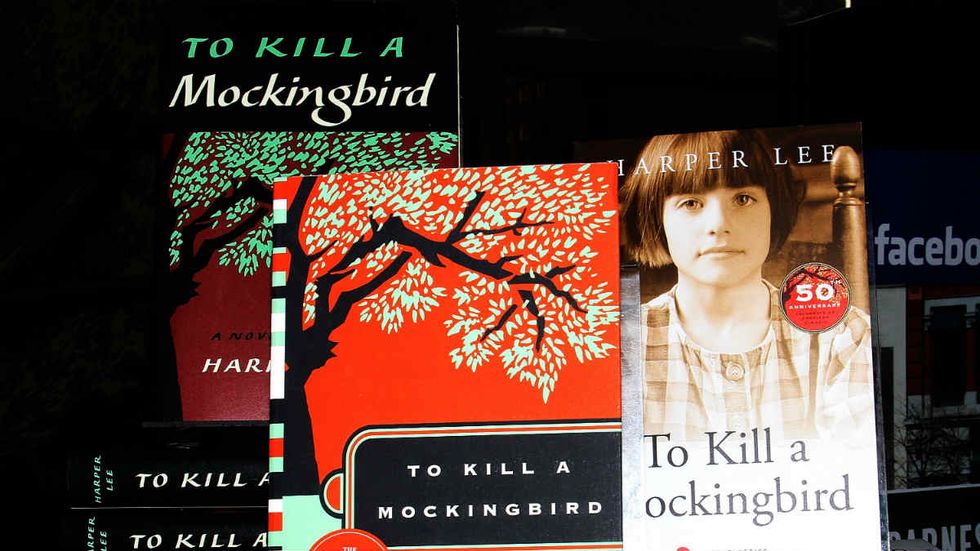
© 2024 Blaze Media LLC. All rights reserved.
Since it’s Banned Books Week, and since we’re in the middle of the eighth level of hell that is the Kavanaugh confirmation saga, we should probably have a talk about “To Kill a Mockingbird.”
Specifically, exactly how long do we have until this American classic finds itself on the banned list yet again?
Yes, a couple of school districts have moved to take it off the shelves because — despite the overall anti-racist message of the novel — it contains the N-word. The public officials behind this have already been roundly criticized as they deserve.
But can this part of the American canon can withstand the #MeToo movement?
Harper Lee’s 1960 classic is the story of Atticus Finch, a lawyer in the Deep South who unsuccessfully defends Tom Robinson, a black man falsely accused of rape in 1930s Alabama, despite proving that his accusers were lying. If you don’t have time to read it (though you should make the time), the 1962 screenplay adaptation starring Gregory Peck is phenomenal, and it’s on Netflix right now.
But in an age where it’s wrong to place the burden of proof on the accuser and where everyone is now expected to believe whatever allegations of sexual misconduct come out of the woodwork without demanding things like evidence or even corroboration, “To Kill a Mockingbird’s” message of justice is a big problem.
Atticus Finch is now, as the cool kids like to say, “problematic.” Sure, he fights racism where he sees it, but he doesn’t #BelieveAllWomen. He actually has the uncaring audacity to demand things like evidence and dares to cross-examine the accuser. In the upside-down crazy land that is 2018, he’s not a principled man dedicated to the pursuit of justice. He’s just a privileged, white mansplainer who doesn’t #BelieveSurvivors.
And to make this whole thing even more problematic for the anti-due-process crowd, the bad guys in the story are the lying accusers and the jury who, despite all the evidence to the contrary, side with the accusers. The clear message that Robinson’s conviction was unjust and the dialogue about justice thereafter just don’t pass muster in the post-proof era.
However, now we know, as Senator Mazie Hirono explained Tuesday, that the plot of the book is impossible, as “women don’t just make these things up” … except, of course, for all those women who definitely did make things up.
Sure, in the book, Tom Robinson didn’t actually do it, but if we’re supposed to believe 100 percent of allegations from 100 percent of women who make them 100 percent of the time, then things like truth, guilt, and proof are obstacles to progress.
So just wait. Before the dust settles on this post-proof movement, we’ll probably see “To Kill a Mockingbird” sacrificed at the altar of #BelieveWomen.
#mc_embed_signup{background:#fff; clear:left; font:14px}
/* Add your own MailChimp form style overrides in your site stylesheet or in this style block.
We recommend moving this block and the preceding CSS link to the HEAD of your HTML file. */
Want to leave a tip?
We answer to you. Help keep our content free of advertisers and big tech censorship by leaving a tip today.
Want to join the conversation?
Already a subscriber?
more stories
Sign up for the Blaze newsletter
By signing up, you agree to our Privacy Policy and Terms of Use, and agree to receive content that may sometimes include advertisements. You may opt out at any time.
© 2024 Blaze Media LLC. All rights reserved.
Get the stories that matter most delivered directly to your inbox.
By signing up, you agree to our Privacy Policy and Terms of Use, and agree to receive content that may sometimes include advertisements. You may opt out at any time.



